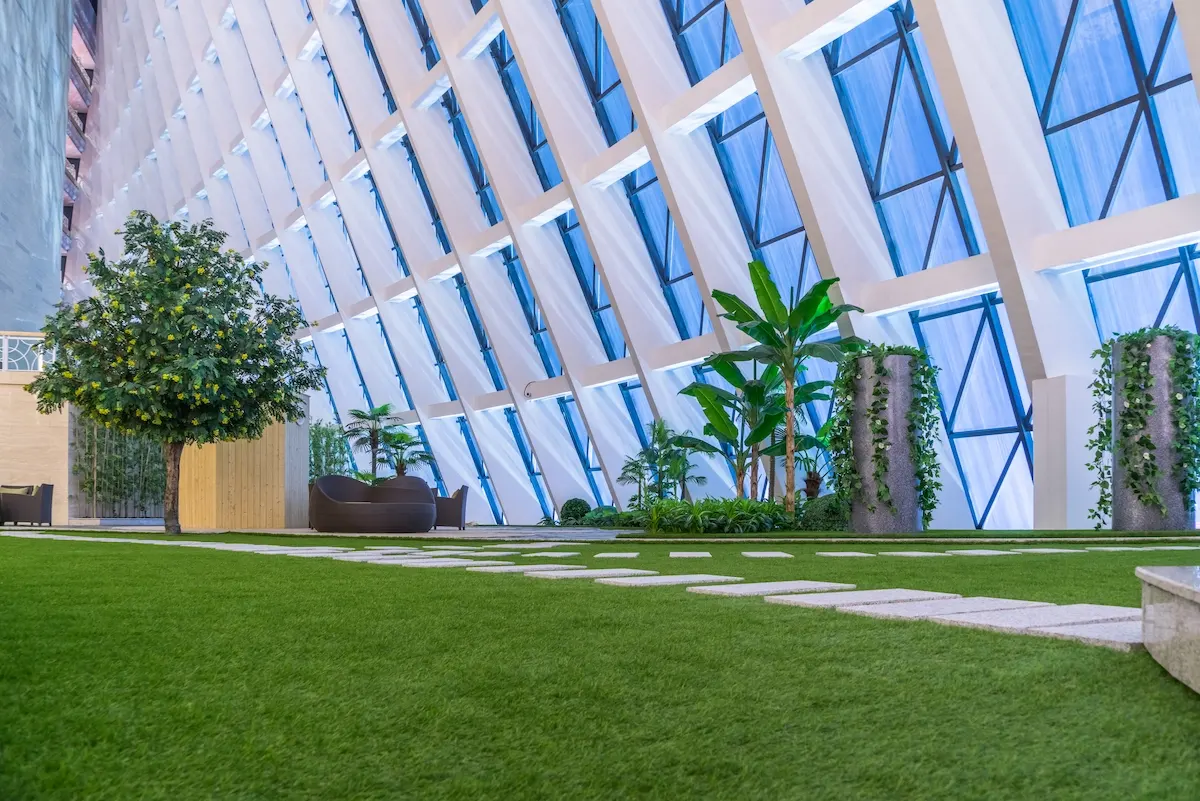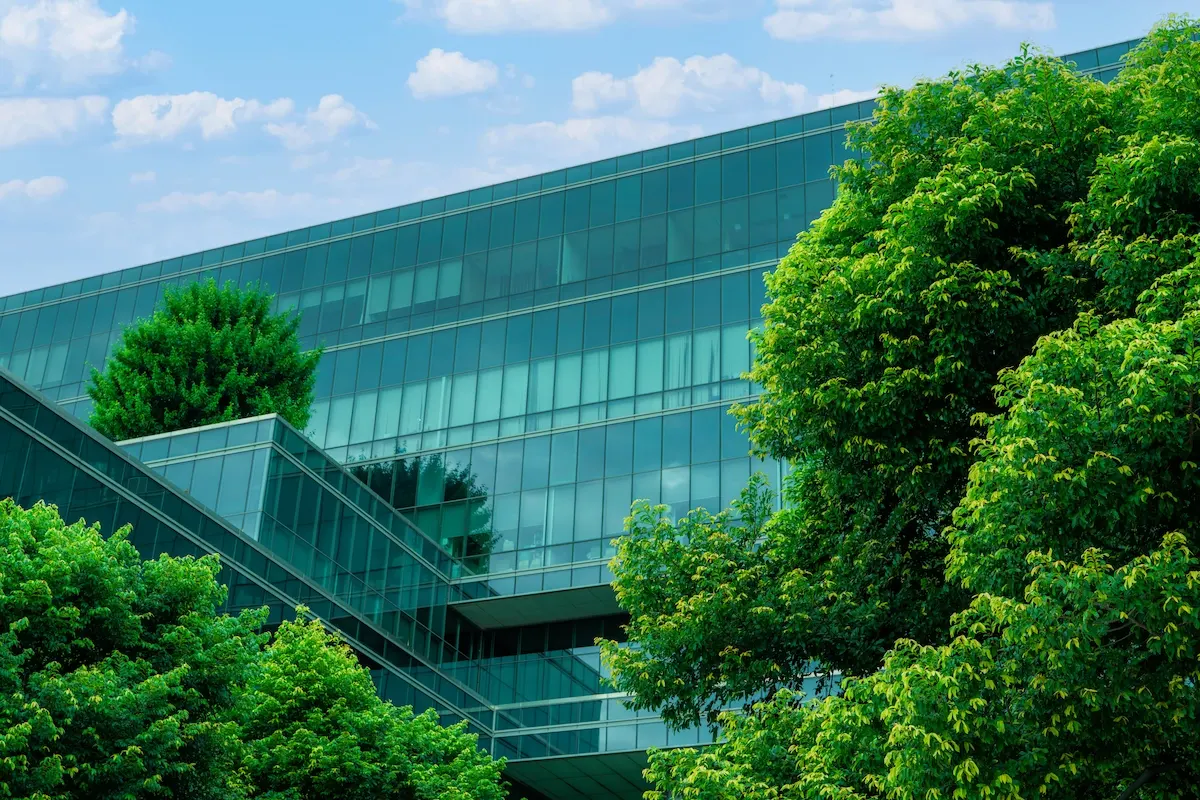
16-07-2025
What Is a Green Building? Functions, Benefits, and Examples
Global warming and climate change have become a reality due to human activities, including the frequent use of fossil energy. To overcome this, one of the efforts you can make is to implement green building practices.
A green building is a concept of sustainable infrastructure in which the materials and operational aspects are based on the environment. It is important to preserve nature.
This article discusses the green building concept and its implementation in Indonesia. So, read this article until the end!
What Is a Green Building?
Green building is an infrastructure and architecture concept that minimizes the negative impact on humans and the environment, meaning that it is built as efficiently and environmentally friendly as possible to the environment to prevent damage.
This concept maximizes the resources, such as using renewable energy and avoiding using excessive materials to create buildings that have a positive impact on the environment.
In addition, all operational processes and waste treatment must be conducted responsibly, ensuring they do not harm the environment and are carried out in an environmentally sustainable manner.
Aspects You Must Consider in Creating a Green Building Design

A few factors need to be considered when creating a green building to make it useful, valuable, and have a positive environmental impact. Here are the aspects you must know:
- Waste management: Ensuring that the operational waste is safe and environmentally friendly before disposal to prevent polluting nature.
- Natural lighting: To reduce electricity usage, you need to maximize open spaces and for natural lighting from sunlight.
- Utilization of remaining materials: Ensuring that remaining materials are not wasted and can be recycled for other purposes.
- Optimize air ventilation: To ensure smooth air circulation without using a lot of air conditioning, you must make sure to optimize air ventilation in the building.
- Using renewable energy: Solar panels or wind turbines can save electricity expenses and conserve the environment.
- Green open space: You can leave some area for green open space and plant some greenery to make the building more beautiful.
Read also: What Is Clean Energy? Benefits, Types, and Examples
The Functions of Green Buildings
A green building has three main functions, such as:
1. Reducing the Impact on the Environment
Green building aims to reduce the negative impact on nature, such as pollution and contamination, that can worsen global warming.
2. Saving Natural Resources
Green buildings can save natural resources, like energy and water, to maintain their supply for future generations.
3. Increasing the Economy and Aesthetic Values
A green building is usually built innovatively and uniquely. Moreover, this kind of building is adaptive and can be adjusted according to the owner’s needs, making it more aesthetic and unique.
Read also: What Is Green Technology? Benefits, Adaptation, and Examples
The Benefits of Green Buildings

A green building gives benefits to humans and the environment. Below are some advantages of green buildings you should know:
1. Saving Water
A green building uses water sources efficiently, making it eco-friendly. One example of this is vacuum toilets, which can save water usage thanks to the air suction.
2. Healthier Environment
Green buildings are designed to create a healthier environment. This can be obtained from green open spaces and optimized air ventilation, facilitating air circulation to prevent excessive humidity.
3. Saving Operational Cost
This building concept saves more operational costs because it reduces the electricity usage, thanks to renewable energy like wind turbines and solar panels.
4. Lowering Carbon Emissions
One of the goals of green buildings is to enable an eco-friendly building. As a result, you provide materials and carry out operational processes cleanly.
This includes reducing carbon emissions that can worsen global warming. One effort to reduce carbon emissions from green building construction is decreasing fossil energy consumption and utilizing renewable energy.
5. Adaptable
A green building is designed to adapt to changes because it implements growing houses. A growing house is a house development done in stages according to your needs, priorities, and financial condition.
Therefore, you can adapt your home to your existing conditions and make it last longer thanks to the adaptations made. Not only that, but green buildings are also built with a modular system and use materials easy to disassemble, making them able to be changed at any time.
Read also: Hydrocarbons: Definition, Types, and Kinds of Reactions
A Green Building Implementation in Indonesia
Now that you understand the green building concept and the benefits, you must know the implementation in Indonesia. In Indonesia, some companies have implemented green buildings for their offices or headquarters. One of the companies is Chandra Asri Group.

As a leading chemical, infrastructure, and energy company in Southeast Asia, Chandra Asri Group has implemented green building practices in the Admin Building OPE at the Ciwandan Plant in Cilegon.
Due to its targeted implementation, the building received the Green Building EDGE (Excellence in Design for Greater Efficiencies) certificate. This certification emphasizes three main aspects: water efficiency, energy efficiency, and embodied carbon in materials.
Furthermore, this certification also assesses sustainability practices in daily operational processes, the utilization of renewable energy, and the selection of materials that have no environmental impact.
That concludes the information about green buildings you must know. This infrastructure concept becomes the attempt to conserve the environment we must support to make the Earth greener.
Read also: How to Reduce Carbon Emission in 8 Effective Ways
.png&w=3840&q=75)